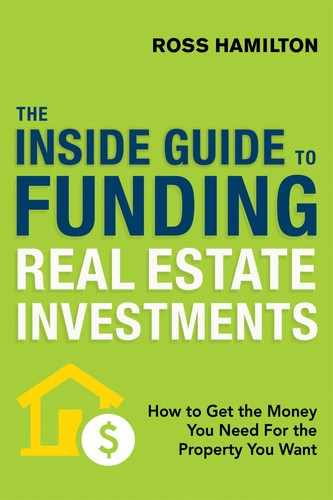AN INTRODUCTION TO ASSET-BASED LOANS
Is Asset-Based Lending What You Need?
Asset-based lending is expanding rapidly and real estate investors are now able to tap into this nearly unlimited supply of funding for their real estate deals. Funding can be secured through local lenders; even more convenient for today’s investor, it can be done online with the click of a few buttons.
For anyone involved in real estate, it is very important to understand what asset-based lending is and how to find quality asset-based real estate lenders. Asset-based lending is a broad term that usually describes lending that is specifically used for business purposes. At its very core, asset-based lending is a business loan that is secured by some sort of asset as collateral. Assets can include a real property, business inventory, accounts receivable, or other balance sheet assets.
So, when something of value is pledged as collateral, it’s an asset-based loan. But we’re not talking about a traditional homeowner’s loan that uses the home as collateral. We’re talking about asset-based lending for real estate investing, which has its own set of rules, purposes, sources, and pluses and minuses. The most common types of asset-based loans for real estate investing are hard money loans and private money loans.
Hard money is readily available to investors, is typically offered by companies or private lenders, and comes with strict guidelines for everything from project plans to draws for paying contractors to repayment terms (usually very short).
Private money loans are issued by individuals and can be much more flexible, but you have to know who to ask. It can take months, even years, to develop a network of private money lenders to work with. Whether you use hard or private money loans, building a strong working relationship is the key to being able to go back for more project funding.
Real estate investors find asset-based lending attractive because loans are based on the property or project, rather than the personal credit history or cash position of the borrower. Instead, lenders look at the numbers and the exit strategy and anticipated return for the investor. They look at the as-is value of the property and the after-repair value of the property if it is a fix and flip. They look for safety in the numbers of the deal rather than debt-to-income ratios and credit scores of the borrower (as covered in great detail in other sections).
These loans work great for real estate investors since many are self-employed; some may have existing mortgages that exclude them from traditional bank financing that limits the number of loans an individual can secure. And for those new to investing, asset-based lenders offer funding options that a traditional lender might not. So, unlike the homeowner who has to prove income, existing debts, and a whole lot more, an investor looking for asset-based funding needs to document the viability of the property and its intended use and anticipated outcome.
There’s been an explosion of asset-based lenders in recent years because there’s a huge demand for investor financing. You know what they say—money follows opportunity, and lenders woke up to the fact that real estate investors have been cut out of the traditional lending model and there has been pent-up demand for funding real estate deals.
There’s a yin and yang to everything, so here’s what to be aware of when considering using asset-based loans, including hard money and private money loans.
The Good, the Bad, the Ugly, and the Facts of Working with Asset-Based Lenders
•Good: Getting funded is easier than working with a bank.
•Bad: Among asset-based lenders, 99 percent will require you put at least 5 percent down. Some will require more.
•Ugly: It’s a lot more expensive than a bank.
•Fact: Funding can be acquired quickly.
•Fact: The borrower needs to document the project thoroughly.
•Fact: Repayment terms are short, typically 6 to 60 months.
•Fact: Loans must be in first position against the property.
•Fact: Loans are only given to investors buying property at deep discounts.
•Fact: Asset-based lenders understand real estate investors.
That covers the basics of asset-based loans for real estate investing. Subsequent chapters get into more specifics about when and how to use hard money loans, private money loans, and several other alternatives for funding real estate deals.
 TAKEAWAYS
TAKEAWAYS
![]() What’s the main difference between a hard money loan and a private money loan?
What’s the main difference between a hard money loan and a private money loan?
![]() What do hard and private money lenders have in common?
What do hard and private money lenders have in common?

